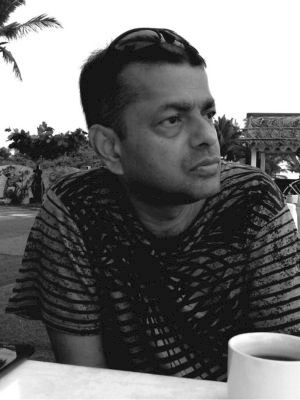004, School of Arts and Sciences
Central Campus
Ahmedabad University

Having contradictions is understood generally, and even in serious philosophical thinking, as an error that needs to be overcome, or solved. But there is a tradition of thinking in ethics that does not consider contradiction as a bane but a necessity against rationalist certainties. In this view, to have contradictions within oneself and to accept contradictions in the real world as well as in the world of thinking is a way to argue without determining an end in view. It is a dialogic idea of thinking. The Mexican poet-critic Octavio Paz admired Nehru's quality to embrace rather than suppress contradictions within himself, and in history. We will explore this understanding.
Manash Firaq Bhattacharjee is a writer, and political science scholar from Jawaharlal Nehru University, New Delhi. He is the author of Nehru and the Spirit of India (Penguin Viking, 2022), The Town Slowly Empties: On Life and Culture during Lockdown (Headpress, Copper Coin, 2021), Looking for the Nation: Towards Another Idea of India (Speaking Tiger, 2018), and Ghalib's Tomb and Other Poems (London Magazine Editions, 2013). His writings, apart from regular contributions to The Wire, have appeared in the New York Times, Al-Jazeera, Los Angeles Review of Books, Guernica, World Literature Today, The Hindu, The Indian Express, Outlook, Scroll, and Economic and Political Weekly, among others. He has taught lyric poetry and literary journalism at Ambedkar University, New Delhi.